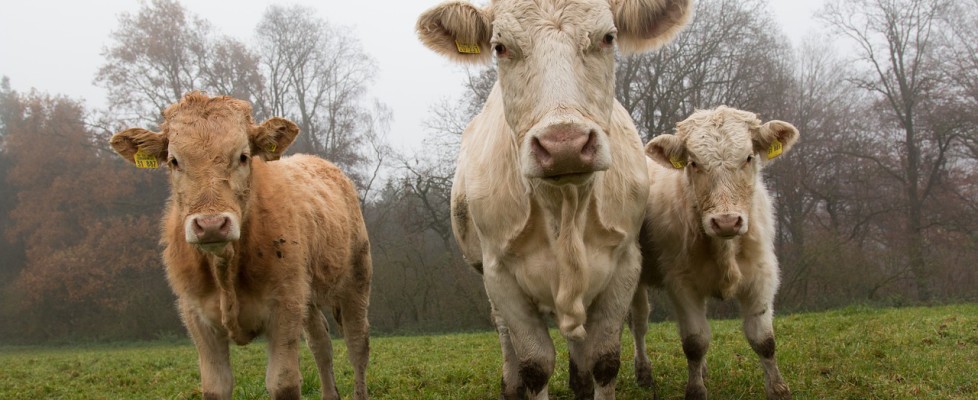Grass-Fed Cows WORSE for Environment than Industrial
Let’s do a quick thought experiment.
Why do two different products have different prices? What determines the price of a thing?
How about we make it more specific. Take chocolate.
You may have noticed that there is a difference between a Hershey Bar and that $4 artisanal bar of organic fair trade dark chocolate that supports Amazon Rainforest protection.
Not only is there a difference in quality, but there is a BIG difference in price. That Hershey Bar is made in a factory, in an industrial process that has used every modern tool to create efficiencies and reduce costs. The least amount of resources are used to maximize profit.
That artisanal $4 bar was likely made my hand in a much more traditional, lower tech way. It was less efficient to produce and thus costs waaaay more.
What does this have to do with cows?
Well there is this notion that many environmentalists have that grass-fed beef is somehow better for the environment than industrial beef.
Now before I go any further let me be clear: I am not saying anything about the ethical or nutrient differences between the two products. Those can be discussed in later posts.
Why was industrial animal agriculture created? Why has it done so well to the point where 99% of animals raised for food in the United States are raised on industrial farms?
If it’s one thing industrial agriculture does well it’s efficiency.
It treats the farm like a factory.
That certainly leads to some pretty nasty unintended consequences (this is where the ethical conversation applies), but treating animals like inputs and outputs in a factory has created a very efficient system.
Meat can be delivered for cheap.
That’s why you get 12 nuggets for $0.99 or two burgers for $1.49.
Use pasture raised chickens and grass-fed beef for those items and you’d be paying 5-10 times as much for your lunch!
So what does this have to do with the environment?
In terms of the environment efficiency is usually a good thing. A more fuel-efficient car saves you money and also emits fewer greenhouse gases per mile on the road.
A more efficient air-conditioner does the same, just like a more efficient thermostat, heater, laptop, or refrigerator.
Well from a greenhouse gas perspective cows are no different, and in this analogy believe it or not, industrial cows are the hybrids.
They use fewer inputs (energy) to produce the same output as a grass-fed cow.
That’s why it’s cheaper.
Grass-fed cows also need far more land than industrial corn-fed cows. It’s another inefficiency of grass-fed cattle, and another reason why their meat costs more.
This means that most people cannot afford grass-fed meat, making it a less viable solution for meeting current demand for meat. There’s no question that switching to only grass-fed animals would have some benefits, but one outcome would be far reduced meat consumption.
Don’t get me wrong — neither are a good way of feeding 8 billion humans and growing. Cows are inherently inefficient converters of solar energy. Solar energy converted to plant energy can feed billions of humans.
In fact, the food fed to the world’s cattle would feed an additional 8.7 billion humans if we fed people directly instead of through a cow first.
But at least when it comes to greenhouse gas emissions, the grass-fed cow is more like the Cadillac than the Prius.
Please Subscribe To My YouTube Channel!
Sign Up For Personalized Health Coaching

